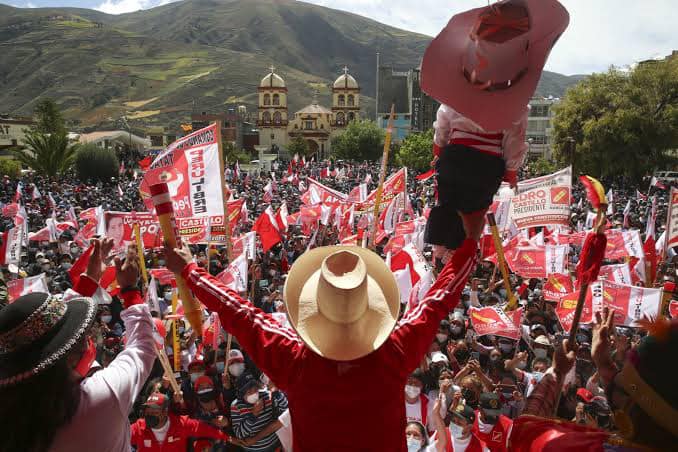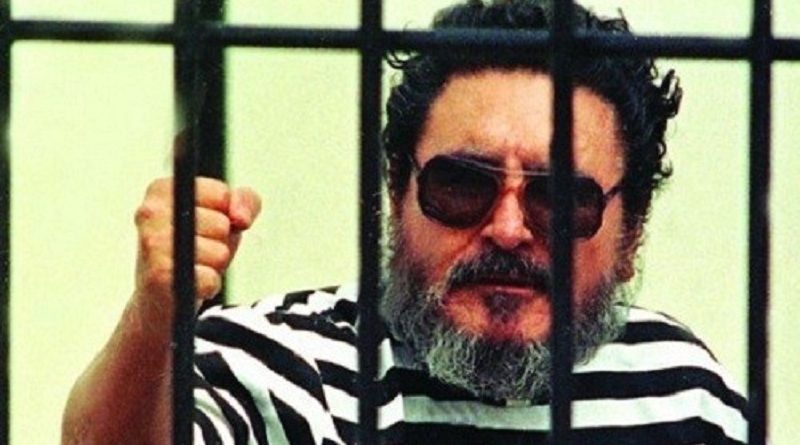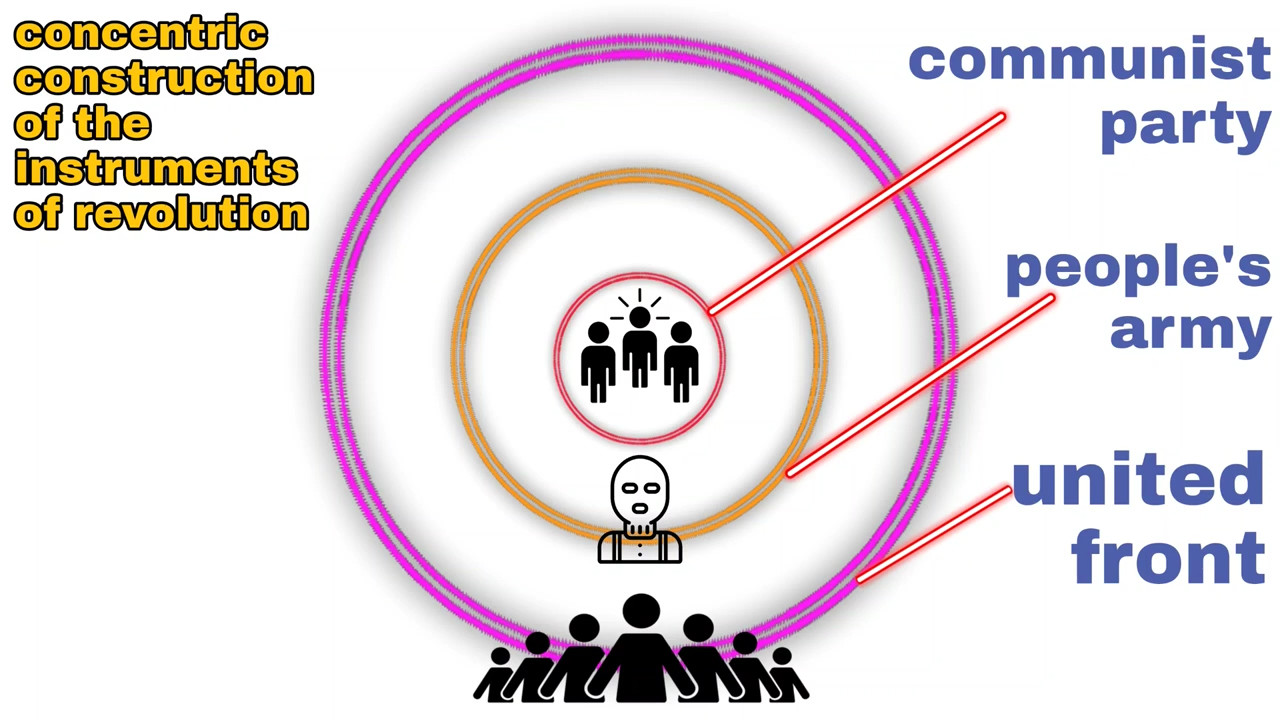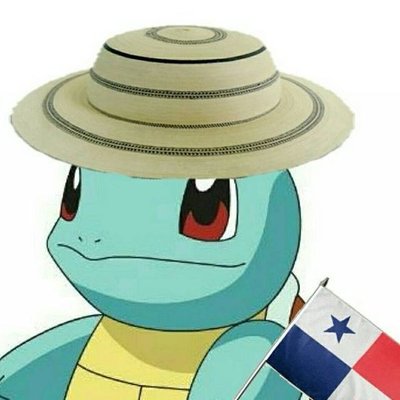On Constructing Revolution
An electoral victory, a socialist failure
Not long ago, Pedro Castillo, a self-proclaimed socialist running under a self-proclaimed Marxist-Leninist party, won the Peruvian elections, to the joy of much of the left. Where does the hope lie for those who celebrate this victory? Even the most excited souls will readily admit that, yes, socialism will not be achieved through the ballot box, so what did they achieve? My goal with this post is not to go in-depth into the politics of Castillo, who hasn’t made it easy for anyone to get a real idea of what he has in mind once in office (assuming he reaches it as the imperialist hegemon sees threat in even the most voracious defenders of bourgeois property so long as it isn’t in the hands of their chosen), but hopefully to bring more attention (at least, positive) to another major player in Peruvian history but most importantly an underrated and too often mindlessly hated political revolutionary and theorist; I want to focus some attention on Chairman Gonzalo and the Peruvian People’s War.

In place of celebration, Castillo’s victory had no effect on me. Instead it was the reaction, from the left itself, that made me uncomfortable. This isn’t to say people have no right to celebrate, and no one should be kicked down over something so harmless as that, but suffice to say, what is there to do! Peru is not socialist, yet already the unknowing dogs of Yankee imperialism will swear this on their life!
I direct myself to those who know Castillo is no socialist but see him as the lesser evil, the source of a socialist trajectory that must be “defended against imperialism”. To those, maybe you, an election boycott is seen as unsatisfactory, unrealistic, ultraleft. At least reformism accomplishes something, right? Here is the PCP’s analysis of Pedro Castillo:
The arch-opportunist “rondero” Castillo, as a result of […] reactionary failure, was converted by a stroke of luck into the “figurehead” of the bureaucratic faction of the big bourgeoisie and head of the opportunists and revisionists of the most diverse stripes. Castillo was a member of the “peasant patrols” (“rondas campesinas“), a counter-revolutionary organisation at the service of the low-intensity war led by US imperialism against the people’s war. These “rondas” are an auxiliary force of the genocidal armed forces in the counterrevolutionary war. Castillo, then, as a representative of the conservative and counterrevolutionary peasants for more than two decades belonged to the party of the “Yankee with a chullo” Toledo, whom he abandoned. Then, in collusion with the rats of the right opportunist, revisionist and capitulationist line (ROL) he climbed up to the presidency of the National Struggle Committee of the Indefinite National Strike of Sutep of 2017 (HNI-2017), against the consistent opposition of the rank and file and leaders of the class-conscious teachers. HNI-2017 which he betrayed in the service of the bosses (Ministry of Education). This opportunist after betraying the HNI and selling the list of demands to the parronal with the help of the parronal and the rats of the ROL with influence in some sectors of the teachers, constituted the famous opportunist and divisive federation (Fundep) to oppose the reconstitution of classist Sutep from the rank and file.
Behind the very aggressive Maoist language, what this boils down to is that Castillo is the reactionary representative of the bureaucratic bourgeois faction of the big bourgeoisie. His reaction is most evident in his public admission to fighting the PCP during their communist revolution; however it should be noted that given the PCP’s unpopularity and the accusations tossed around of every leftist being sendero, it could be bluff. Fine, let’s put that aside for now. Just as important is a deeper look into his union efforts, in which he consistently sided with the right and conceded them influence, while consistently working against the class struggle of the teachers. Not a good look from a supposed socialist!
Behind the opportunist Castillo, representative of the bureaucracy, are other opportunists as shameless as he, namely those of the Frente Amplio, those of “New Peru” and others of the most varied colours and shagginess, but all of them aligned behind the reactionary task of restructuring the old bureaucratic landlord state to “overcome the generalised crisis”, saviours of the state collapse through their vaunted “constituent assembly” and “new constitution”. How would it benefit the people and the nation? Obviously nothing, or have the proletariat, the mainly poor peasantry and the people in general ever benefited from the implementation of these “famous democratic proposals”? All these and revisionists are about to push forward this reactionary task of state restructuring in order to further crush the people and seek to annihilate the people’s war. Nothing good for the people can come from the reactionary elections, everything good for the people can only come from the people’s war.
But it makes more sense when you accept the absolute dead-end that are elections, or unions without party leadership. Heinrich tells us in An Introduction to the Three Volumes of Karl Marx’s Capital that the state “does in fact conduct itself as a neutral instance with regard to its citizens; this neutrality is in no way merely an illusion” unlike is commonly believed by leftists, but this hidden truth, when unrecognised, paradoxically affects our recognition of success or failure. What might look superficially like a socialist victory through a vote is really the state taking control of this direction and adapting it to its needs. To put it simply, “it is precisely by means of this neutrality that the state secures the foundations of capitalist relations of domination and exploitation”. Such is meant by the PCP when it calls these opportunists “saviours of the state collapse through their vaunted ‘constituent assembly’ and ‘new constitution’”.
So the bourgeois state, in the end, serves to protect itself within its apparatus. The masses are still not class conscious, there is no path to revolution at the present moment. Why not just keep voting, gaining supposed concessions, until the reformist road has been exhausted? Those who still believe this need only to see any social democracy in the world today and their zig-zagging trajectories.
Destigmatising People’s War as a model for 21st century organising

The People’s War of Peru started in the year 1980. That makes it one of the most modern socialist revolutions of our times, with some of the most advanced political theory to go with it. In an era with little voter turnout in much of the world and a bourgeoisie desperate to validate their rule, the PCP’s ideology of Marxism-Leninism-Maoism, principally Maoism fundamentally opposed any such electoral participation. To them, as Mao said, “political power grows out of the barrel of a gun”. In these desperate times the bourgeoisie will do anything for voter participation, and the imperialist dogs will chase after their word. In moments of capitalist crisis, these dogs which call themselves leftists will tail bourgeois politicians instead of leading the proletarian class to take power for itself. Some socialists. Lenin:
We have said that there could not have been Social-Democratic consciousness among the workers. It would have to be brought to them from without.
People’s War is unfortunately too often understood as just “surrounding the cities from the countryside”, leaving a negative impression on the applicability of it in certain countries. But People’s War is much more than that. For starters it doesn’t start as an armed struggle at all, but rather all political work is subordinated to it. Every political action must serve the needs of armed struggle and the revolution, they are one and the same. To quote the party:
The struggle for power is principal but it cannot be separated from the struggle for economic and political demands, they are two sides of the same coin, and the latter struggle is necessary.
How do we conceive the struggle for revindications? We are accused of not having a specific line for the economic and political struggle of the masses. The fact is that we apply it in another way, in other forms, with different politics opposed to those applied by the opportunists and revisionists, a new and different way from the traditional forms. Chairman Gonzalo teaches us that the struggle for economic and political demands is one side of a coin, which has the struggle for political power on the other side. It is completely wrong to separate them—to talk only about the struggle for economic and political demands is revisionism.
This seperation is the most damning cause of the left’s irrelevance. The Peruvian experience is of a clandestine party, one which integrates itself with the masses and leads them from every possible front. Unions were infiltrated and party cadre led heroic economic struggles that paved the way for armed actions over time, schools were used by students and teachers for preparing the masses with revolutionary ideology, and most importantly, voting was considered a sin by the revolution, opportunism was considered the very grave threat it posed to the taking of power.

With the party at the center, the people will make revolution. It is the duty of every communist to struggle toward the creation of these three instruments and cast away opportunism, the greatest threat to our movement today. On and on until communism!
Conclusion
Lately I have been speedreading as much as I can. The more I read the more I realise how little I know. Like Mao said:
Discover the truth through practice, and again through practice verify and develop the truth.
It is through this practice that we build the party around the gun, through the constant struggle of our communist combatants.
